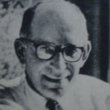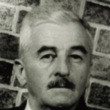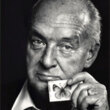The actual
(Book)
Copies
| Location | Call Number | Status | Due Date |
|---|---|---|---|
| Central - Adult Fiction | F BELLO | Checked Out | June 20, 2025 |
Description
More Details
Notes
Similar Titles From NoveList
Similar Authors From NoveList
Published Reviews
Booklist Review
Bellow has recently embraced the novella as his favorite form, with brilliant results. His latest confirms not only his mastery of the novella's special qualities of precise yet uncramped expression but also the distinctiveness of the form itself, which, in many ways, is superior in effectiveness to the short story or the novel. Harry Trellman has been drawn back to his hometown of Chicago after a lucrative business career has propelled him to such locales as Guatemala and Burma. By chance, Harry meets mega-elderly and mega-rich businessman Sigmund Adletsky, who immediately perceives Harry's ability to discern human nature and enlists him as part of his "brain trust." This business with the old geezer brings Harry into contact with Amy Wustrin, a woman Harry loved many, many years ago and whom he has never forgotten: thus the emotional tug that drew him back to Chicago in the first place. Amy had married Harry's best friend but has gone through a horrible divorce, and now the husband is dead. Amy is an interior decorator, which is the connection she has with old man Adletsky. Harry and Amy's reacquaintance is the substance of Bellow's piquant elegy to first and rekindled love. The surface of the story carries few valleys and peaks, but beneath its outwardly uncomplex exterior pulsates reassuring emotions about permanence in the face of life's transience. --Brad Hooper
Publisher's Weekly Review
"A man's road back to himself is a return from his spiritual exile, for that is what a personal history amounts toexile." So says Harry Trellman, the narrator of the Nobel laureate's latest work, who is by any measure an exile several times over. Trellman's ailing mother and hardworking father consigned him to an orphanage; shady business dealings kept him in the Third World for most of his adulthood. Over the years, his high-school sweetheart, the only woman he ever loved, has grown old in the arms of other men. Now in late middle age, Trellman has returned to the Chicago of his youth to recover what he can of the life that has passed him by. A kind of an affectionate, latter-day "Lovesong of J. Alfred Prufrock," this novella nevertheless carries distinguishing Bellow trademarks: the mythically cosmopolitan, clubby Chicago where bankers quote Hamlet and intellectuals stumble into wealth; the Emersonian turns of phrase ("`Distance' is a formality. The mind takes no real notice of it") grounded in Yiddish earthiness ("He's got a condom over his heart"); and, deeper than these, Bellow's passionate eroticism, wherein, in order to get at the "actual" beloved, one must survive sex, transgression, divorce and ménages à trois, whether of the body or the spirit. Bellow is a conservative in the best sense: he calls his readers constantly back to what they can't help but believe, at the same time insisting, as Trellman puts it, on a common recognition "that the powers of our human genius are present where one least expects them." As usual in Bellow's more recent fiction, plot is secondary here. So is character, for the hero of this small love-story is character itself. (May) (c) Copyright PWxyz, LLC. All rights reserved
Library Journal Review
Harry Trellman, the protagonist of Bellow's latest offering since the trio of short fiction, Something To Remember Me By (Dutton, 1991), is an orphan of sorts, a spiritual self-exile who imagined he could "effect a transfer to another civilization"; he made his fortune in the Far East before returning to Chicago to ease his emotional longing, specifically for the woman who has figured in his thoughts since age 15. Harry, as a remote observer of human nature, will put readers in mind of numerous of Bellow's antiheroes, such as Moses Herzog (Herzog, 1964) and Charlie Citrine (Humboldt's Gift, 1975). Harry's vehicle for immersion in the actual is the ancient billionaire Siggy Adletsky and other "notables" of Chicago society bent on a series of coming-clean schemes that Bellow concocts so ingeniously. In effect, this charming, pared-down tale is a study of the master's method, and despite his determined obfuscation, it is an achingly simple cry from the heart that reads like a parting love letter. Essential for all collections.Amy Boaz, "Library Journal" (c) Copyright 2010. Library Journals LLC, a wholly owned subsidiary of Media Source, Inc. No redistribution permitted.
Kirkus Book Review
Nobel laureate Bellow's recent penchant for the novella (A Theft, The Bellarosa Connection, both 1989) continues with this witty portrayal of late-life intrigue, politicking, and passion. Chicagoan Harry Trellman, the story's narrator, is a semi- retired importer whose cautious demeanor and unusual physiognomy (he describes his countenance as ``Chinese-looking'') have made him a kind of outsider--from the centers of financial power and also from the satisfactions of romantic love. A ``first-class noticer,'' Harry is appropriated as an advisor by elderly Sigmund Adletsky, trillionaire hotel magnate, and, as a chance by-product of joining Adletsky's ``brain trust,'' Harry is reunited with Amy Wustrin, the woman he'd loved decades ago, and with the bittersweet memory of Amy's late husband and his old pal, faithless, freewheeling Jay (``If being sexual was like being drunk, Jay was something like a drunken driver''). Bellow expertly tangles these characters' lives together: Amy, an interior decorator, is hired to assess the value of furnishings in a luxury apartment the Adletskys covet--owned by Bodo Heisinger, whose wife Madge was convicted and imprisoned for hiring a hit man to kill Bodo, who nevertheless continued to adore her and secured her release. Though Harry thinks he's separated, by looks and lifestyle, from this melodramatic human muddle (``I see myself taking pleasure in these assorted people, their motives, their behavior''), he learns he's one of them--a perception emphatically confirmed by a cliffhanger ending recalling that of Bellow's great short novel Seize the Day. The working-out of these intricate plotlines is rather perfunctory, and a few redundancies have escaped editing, but the writing is sharp, and we're absorbed by the personalities of several vividly sketched characters, especially Harry, one of Bellow's most engaging everymen. Like Augie March, Harry Trellman chooses life; like Tommy Wilhelm (of Seize the Day), he's shaped and driven not by intellectual or social imperatives, but by the insistent proddings of ``the heart's ultimate need.''
Booklist Reviews
/*Starred Review*/ Bellow has recently embraced the novella as his favorite form, with brilliant results. His latest confirms not only his mastery of the novella's special qualities of precise yet uncramped expression but also the distinctiveness of the form itself, which, in many ways, is superior in effectiveness to the short story or the novel. Harry Trellman has been drawn back to his hometown of Chicago after a lucrative business career has propelled him to such locales as Guatemala and Burma. By chance, Harry meets mega-elderly and mega-rich businessman Sigmund Adletsky, who immediately perceives Harry's ability to discern human nature and enlists him as part of his "brain trust." This business with the old geezer brings Harry into contact with Amy Wustrin, a woman Harry loved many, many years ago and whom he has never forgotten: thus the emotional tug that drew him back to Chicago in the first place. Amy had married Harry's best friend but has gone through a horrible divorce, and now the husband is dead. Amy is an interior decorator, which is the connection she has with old man Adletsky. Harry and Amy's reacquaintance is the substance of Bellow's piquant elegy to first and rekindled love. The surface of the story carries few valleys and peaks, but beneath its outwardly uncomplex exterior pulsates reassuring emotions about permanence in the face of life's transience. ((Reviewed May 1, 1997)) Copyright 2000 Booklist Reviews
Library Journal Reviews
Harry Trellman, the protagonist of Bellow's latest offering since the trio of short fiction, Something To Remember Me By (Dutton, 1991), is an orphan of sorts, a spiritual self-exile who imagined he could "effect a transfer to another civilization"; he made his fortune in the Far East before returning to Chicago to ease his emotional longing, specifically for the woman who has figured in his thoughts since age 15. Harry, as a remote observer of human nature, will put readers in mind of numerous of Bellow's antiheroes, such as Moses Herzog (Herzog, 1964) and Charlie Citrine (Humboldt's Gift, 1975). Harry's vehicle for immersion in the actual is the ancient billionaire Siggy Adletsky and other "notables" of Chicago society bent on a series of coming-clean schemes that Bellow concocts so ingeniously. In effect, this charming, pared-down tale is a study of the master's method, and despite his determined obfuscation, it is an achingly simple cry from the heart that reads like a parting love letter. Essential for all collections. Amy Boaz, "Library Journal" Copyright 1998 Library Journal Reviews
Publishers Weekly Reviews
"A man's road back to himself is a return from his spiritual exile, for that is what a personal history amounts to exile." So says Harry Trellman, the narrator of the Nobel laureate's latest work, who is by any measure an exile several times over. Trellman's ailing mother and hardworking father consigned him to an orphanage; shady business dealings kept him in the Third World for most of his adulthood. Over the years, his high-school sweetheart, the only woman he ever loved, has grown old in the arms of other men. Now in late middle age, Trellman has returned to the Chicago of his youth to recover what he can of the life that has passed him by. A kind of an affectionate, latter-day "Lovesong of J. Alfred Prufrock," this novella nevertheless carries distinguishing Bellow trademarks: the mythically cosmopolitan, clubby Chicago where bankers quote Hamlet and intellectuals stumble into wealth; the Emersonian turns of phrase ("`Distance' is a formality. The mind takes no real notice of it") grounded in Yiddish earthiness ("He's got a condom over his heart"); and, deeper than these, Bellow's passionate eroticism, wherein, in order to get at the "actual" beloved, one must survive sex, transgression, divorce and ménages à trois, whether of the body or the spirit. Bellow is a conservative in the best sense: he calls his readers constantly back to what they can't help but believe, at the same time insisting, as Trellman puts it, on a common recognition "that the powers of our human genius are present where one least expects them." As usual in Bellow's more recent fiction, plot is secondary here. So is character, for the hero of this small love-story is character itself. (May) Copyright 1998 Publishers Weekly Reviews
Reviews from GoodReads
Citations
Bellow, S. (1997). The actual . Viking.
Chicago / Turabian - Author Date Citation, 17th Edition (style guide)Bellow, Saul. 1997. The Actual. New York: Viking.
Chicago / Turabian - Humanities (Notes and Bibliography) Citation, 17th Edition (style guide)Bellow, Saul. The Actual New York: Viking, 1997.
Harvard Citation (style guide)Bellow, S. (1997). The actual. New York: Viking.
MLA Citation, 9th Edition (style guide)Bellow, Saul. The Actual Viking, 1997.


































